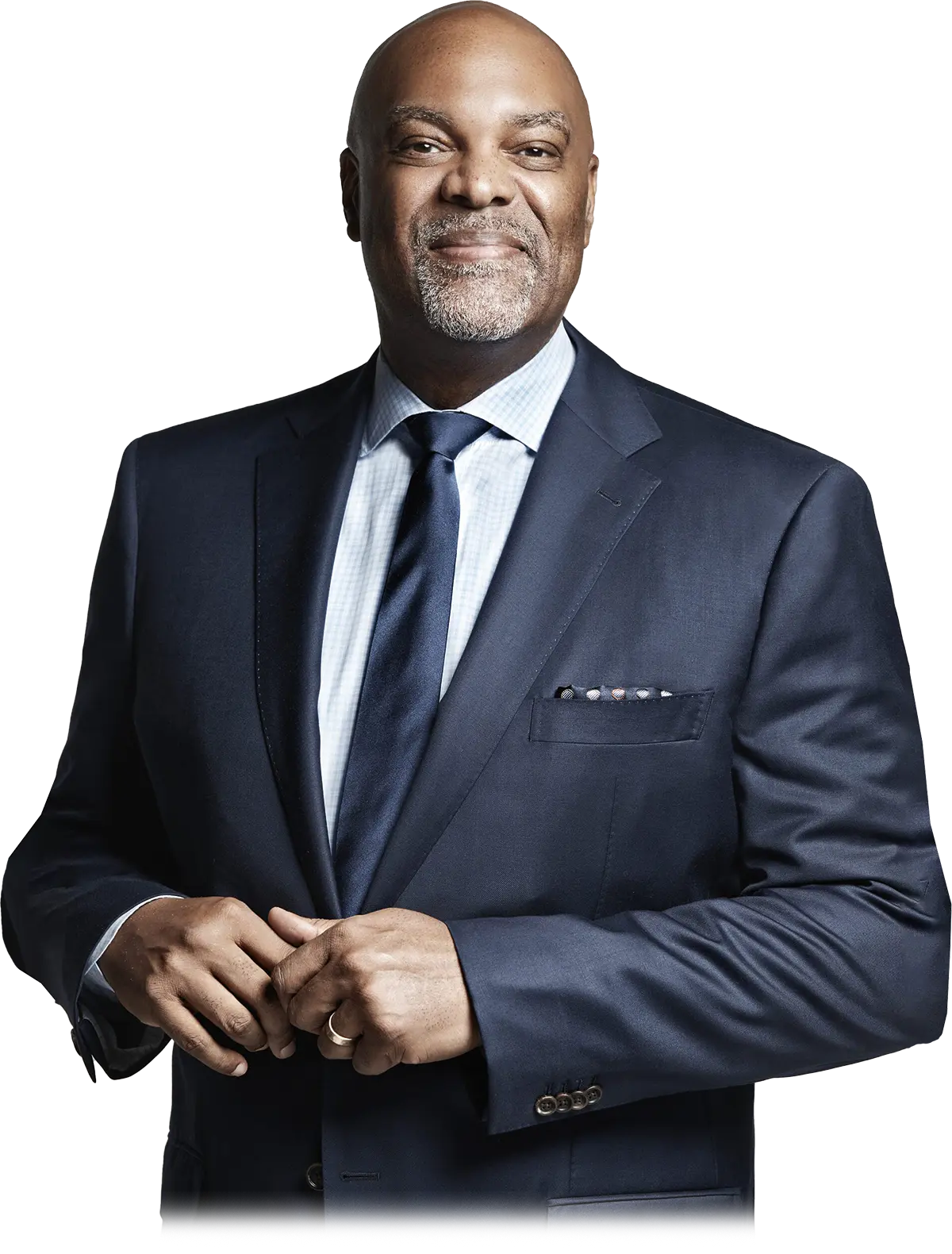Keith Hinderlie ’88
“I grew up in … a really diverse and vibrant community … between Harvard and MIT,” Hinderlie explains, and he felt the culture shock viscerally after moving to a state that later proved to be the last in the union to recognize Martin Luther King Jr. Day.
Regardless, the warmth among the members of the UNH basketball team overrode any underlying anti-racial sentiment. “It was a very close-knit group,” he explains. “And while UNH basketball … wasn’t [famous] at that point, I really liked the vibe of the teammates.”
This vibe proved supportive of him as he worked his way through college, eventually deciding on a major in psychology that carved the pathway for his becoming a trailblazer in diversity, equity, inclusion and justice (DEIJ) in education. Nevertheless, it wasn’t the easiest road to navigate.
Soon after Hinderlie arrived at UNH ready to play basketball, he was sidelined for the entire season by a shoulder injury. Although he stayed an undergrad student long enough to play basketball for a full four years, he recalls feeling disappointed at the time of his injury freshman year. In hindsight, though, he regards the injury as a blessing in disguise.
“Since I didn’t play basketball that first year, I got to be a general student — not a student-athlete,” Hinderlie says. Without the protection of the team constantly around him, he was forced to confront the culture shock head on: “The environment, the culture, the demographics, were so different from what I was used to,” he says. “It really took me, I would say, almost two years to fully feel adjusted to the community. And sort of making sense of that as a young person was a challenge.”

Hinderlie would go on to earn a master’s and a doctoral degree, and then a career in education opportunities: advising and guiding independent and charter schools in all aspects of DEIJ. He has worked at Milton Academy, Garland Country Day School, Choate Rosemary Hall and the SEED School of Washington, D.C., in similar capacities, ensuring and supporting the psychological safety of the whole community.
“The people of color, people who identify as LGBTQ+, people who might practice a religion other than Christianity, all of those pockets, students that come from families where there’s fear or insecurity or poverty — all of those, those populations — I’m trying to affirm and create a better environment for them,” he says. “And my experience at UNH influences that.”
He was an integral part of the SEED Foundation, a nonprofit that supports a network of public, college-preparatory boarding schools designed for students who need a 24-hour learning environment to achieve their full potential. The goal of the SEED school model is to give underserved students opportunities normally held for those coming from a place of privilege.
The first SEED school, founded in 1998 in Washington, D.C., was a huge success; it garnered nationwide attention and was featured on “60 Minutes” and “Oprah.” SEED schools were created from the same blueprint in Baltimore, Miami and Los Angeles.
Today, Hinderlie works alongside his wife of 30 years, Holly Hinderlie, Ph.D., at Hinderlie & Associates. Both licensed psychologists, their combined mission is to support schools and organizations across the country in becoming more inclusive.
“Most of the consulting work I do is with predominantly white, elite academic institutions, helping them learn or grow into more inclusive communities,” Hinderlie explains.
“I look at the work as: it’s a piece of America and has always been a piece of America. They may be called different things, but at the end of the day, it’s a fight for equitable and just schools and institutions,” he says. “There’s always been a fight for that, and this is just the latest chapter of the same work that was there all through history.”